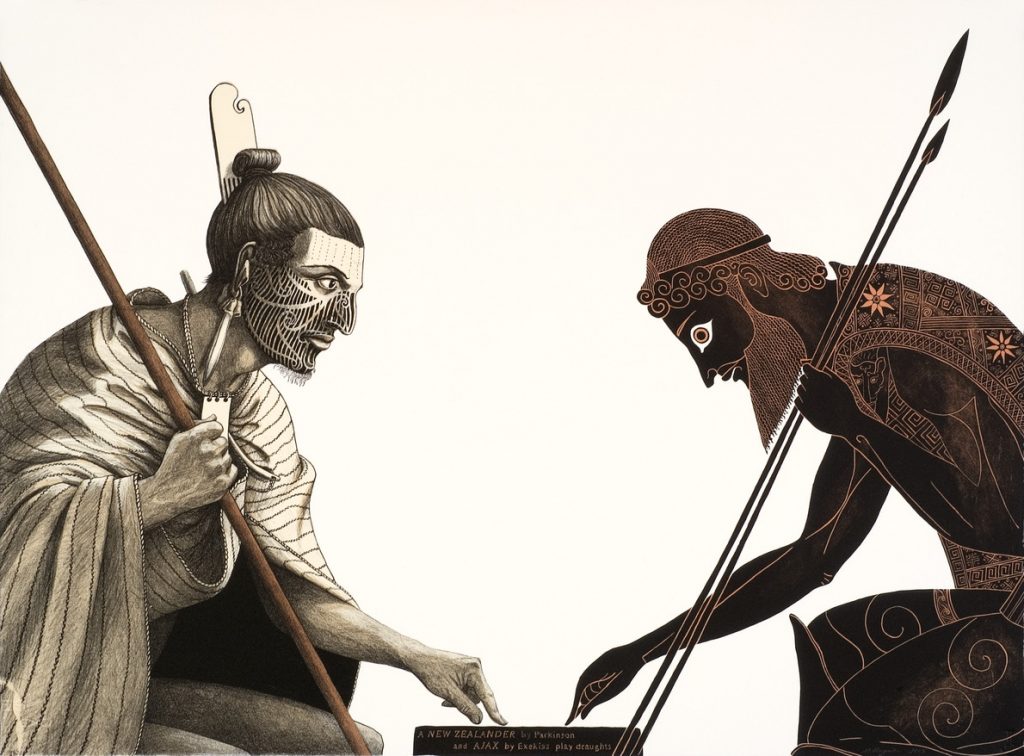After registration, relevant Zoom links will be individually sent out
Illuminating Mediterranean Antiquity through Comparative History: Theorising ‘Soft’ Approaches
International online conference co organized with Swansea University - July 20-21, 2022

In Greek and Roman studies, comparative history has often been seen as inherently anachronistic, doomed to project modern notions onto the ancient past. Such a perspective is increasingly untenable, as the wealth of comparative ancient history in recent decades has borne significant fruit. This methodology tends to fall into two broad categories: a ‘rigorous’ comparative approach, drawing meticulous contrasts and comparisons, typically juxtaposing broadly contemporary or analogous societies (e.g. Rome and China; cf. Mutschler & Mittag 2008; Scheidel 2009; Bang & Kolodziejczyk 2012; Kim et al. 2017; Beck & Vankeerberghen 2021); and a ‘soft’ comparative approach, using alternative material to generate new questions and angles of inquiry, and explore the limits of the possible (on this distinction, see Webster 2008, 107; Joshel & Petersen 2014, 22; Padilla Peralta 2017, 320).
Since the bulk of recent volumes have focused on the former approach, this workshop will focus on the latter: how can the fuller documentation available for, and alternative approaches used in, the study of other periods of history illuminate the ancient past?
Ancient slavery studies have led the pack with this approach, asking new questions of ancient evidence informed by rich understanding of the antebellum US South and/or the trans-Atlantic slave trade (see, most recently, Parmenter 2020; Padilla Peralta 2017; Joshel & Petersen 2014; for overviews, Webster 2008; Vlassopoulos 2011). Economic studies have also profited from such generative comparison (Bang 2008) as has demographic work (Vlassopoulos 2014). Other forays into the ‘imaginative enrichment’ of antiquity provided by later history/historiography highlight the potential for greater exploitation of similar approaches (e.g. Bosworth 1996; Bagnall 1997).
Conference organizers:
Dr. Stephen Harrison (Swansea University, stephen.harrison@swansea.ac.uk)
Dr. Dylan James (Haifa Center for Mediterranean History, University of Haifa, dylan.s.james@gmail.com)
Program:
All times listed are BST (i.e. GMT+1).
Day 1: Wednesday 20th July
SESSION 1: 11.00-12.15. Welcome, Introduction, and Keynote
Welcome and Introduction.
Dr. Dylan James, The Haifa Center for Mediterranean History, University of Haifa & Dr. Stephen Harrison, Swansea University
Opening Keynote. Comparative History and Ancient Multilingualism.
Professor Rachel Mairs, University of Reading
[NB: This paper will be delivered live and not pre-circulated].
Respondent: Dr. Katherine McDonald, Durham University.
BREAK: 12.15-12.30
SESSION 2: 12.30-14.00. Big Picture Comparisons.
Coercion, Capital, and the Hellenistic Mediterranean.
Dr. David Rafferty, University of Adelaide
Social Organisation and Agricultural Production in Mountainous Areas.
Dr. Michael Economou, University of Oxford
Respondent: Dr. Ersin Hussein, Swansea University.
BREAK: 14.00-14.45.
SESSION 3: 14.45-16.15. Comparative Perspectives on Late Antique Egypt
Using Peer-to-Peer Credit Practices from Early Modern France and England to Open Lines of Inquiry about Peer-to-Peer Credit in Late Antique Egypt.
Dr. Elizabeth Buchanan, University of Findlay
Cross-Cultural Comparison(s) to Understand Late Antique Domestic Religiosity: Perspectives from the Study of Religion\s.
Dr. Mattias Brand, University of Zürich.
Respondent: Dr. Luise Frenkel, Universidade de São Paulo, St Edmund’s College (Cambridge)
BREAK: 16.15-16.30.
SESSION 4: 16.30-17.30. Keynote.
‘Soft’ and ‘hard’ approaches in the history of emotions: the case of Greece and China.
Dr, Jingyi Jenny Zhao, University of Cambridge
Respondent: Dr. David Machek, University of Bern.
Day 2: Thursday 21st July
SESSION 5: 12.00-13.45. New World Perspectives on Mediterranean Antiquity.
Gubernatorial authority and local jurisdiction in Roman Republican East and Spanish America.
Dr. Bradley Jordan, British Institute at Ankara
Alexander in Bactria and India, and the Spanish in America: Agency and Interaction on the Fringes of Empire.
Dr. Stephen Harrison, Swansea University
Indigenous Guides and Comparative History: Reflections on Alexander and Columbus.
Dr. Dylan James, University of Haifa
Respondents: Dr. Bradley Dixon, University of Memphis; Dr Adrian Masters, University of Tübingen.
BREAK: 13.45-14.30
SESSION 6: 14.30-16.15. Comparative Approaches to Slavery in Antiquity and Keynote
Comparative Medical Experimentation: 18th Century Slavery and the Ancient Mediterranean.
Jordan Cohen, University of California Riverside
Enslaved Workers and Affective Labour in Ancient Rome and the Antebellum South: Agency and Strategies.
Dr. Alex Cushing, University of Toronto
Respondent: Dr. Christopher Parmenter, Ohio State University.
Closing Keynote. Ancient Mediterranean Slavery and the Comparative History of Slavery in the Early Modern Atlantic.
Assoc. Prof. Kostas Vlassopoulos, University of Crete
[NB: This paper will be delivered live and not pre-circulated].
BREAK: 16.15-16.45.
SESSION 7: 16.45-18.00. Plenary Discussion and Closing Remarks.
All participants and attendees are invited to contribute to a discussion reflecting the themes and issues emerging from the conference as a whole.
After registration, relevant Zoom links will be individually sent out

